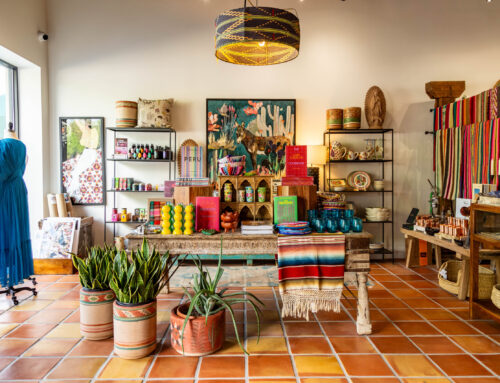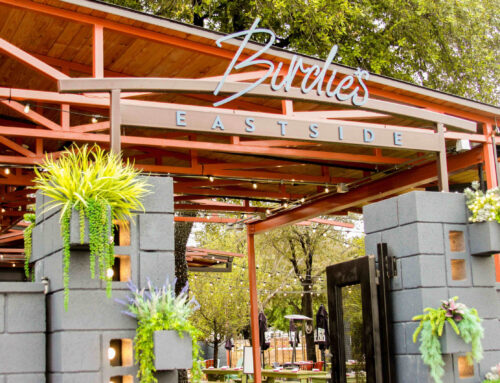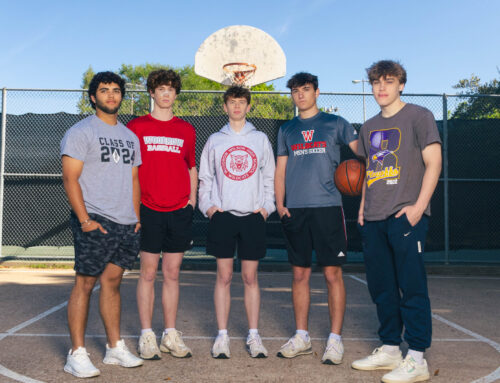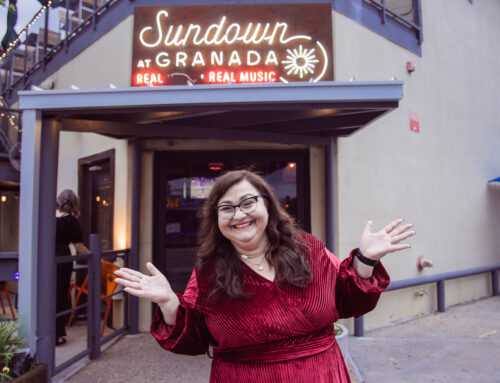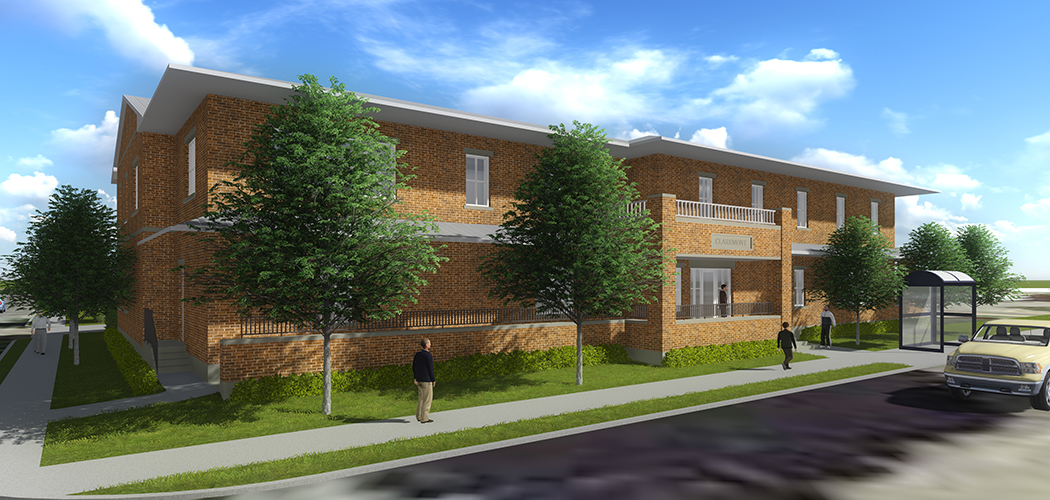
An architect’s rendering of the newly designed 24 Hour Club.
When the 24 Hour Club temporarily closed its doors last year, the place was falling apart.
The nonprofit sober living facility primarily serves men and women who otherwise would be homeless.
It first opened in 1969 and took up residence in a 100-year-old building at the corner of Ross and Grigsby avenues in 1988.
Before it closed, there typically were 67 people living in 7,000 square feet. In 2014 its board of directors had spent $25,000 to squeak past code enforcement and another $25,000 for pest control to treat bedbugs.
“It would scare people, to be honest with you,” executive director Marsha Williamson says of the club’s former digs.
But the 24 Hour Club is getting an upgrade. A new facility, going in at the same site on Ross, will double the building’s size.
The old place had two dorms, one for men and one for women, with just three bathrooms. Men newly entering the facility had to sleep on mats on the floor of a meeting room — all 15 of them had to shower and be out of the room by 7:30 a.m., in time for the first 12-step meeting of the morning.
The new club will have two stories comprising 14,000 square feet with an outdoor recreation area, a community room, three resident lounges and plenty of bathrooms and showers for residents. It will also have a public restroom, which the old facility never had. It will be big enough to house 78 men and 30 women comfortably in two dorms for men and one for women.
The nonprofit raised $600,000 to partially fund the new building, which has a value of about $3 million. HKS Capital Partners donated 100 percent of the architecture work, a $225,000 value. Builder KDC also is donating services and has worked to acquire hundreds of thousands in donations from its subcontractors and vendors.
The 24 Hour Club offers alcoholics and drug addicts a safe place to confront sobriety. It’s open to anyone who agrees to be sober, and there are 12-step meetings at all hours, hence the name.
Residents receive bed linens, toiletries, clothing, three free meals a day for the first week and health services from Parkland Hospital. The facility’s staff also helps connect residents to other agencies for additional resources.
Residents pay $9 a day, and low-cost meals are available for breakfast, lunch and dinner. Those who arrive penniless with no job are extended credit. It’s the only sober-living facility in the region that allows addicts to enter with no money.
But extending credit gives residents something to work toward so they can regain their dignity, Williamson says.
“It gives people a solid foundation of sobriety so they can become productive members of society instead of a drain on the system,” she says.
Resident can stay up to 18 months, long enough to rebuild their lives — jobs, apartments, visits with their children — while learning how to cope without substance abuse.
None of that will change with the new facility, Williamson says.
Ground broke on the new 24 Hour Club in February, and it could be completed within a year.
While there’s no other sober-living facility like this one, the 24 Hour Club does what it can to help people find housing in the interim. Manager Aaron Smith still answers the phone from a temporary office at the Agape Clinic.
And the 63-year-old Ross Avenue Alcoholics Anonymous group, second oldest in the Dallas area, also still meets 21 times a day at the Agape Clinic, 4104 Junius St.
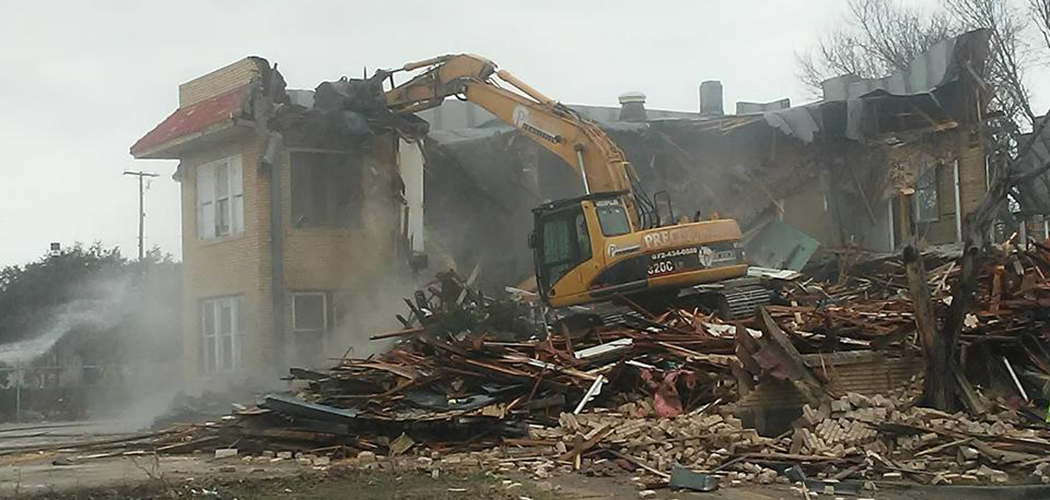
The former 24 Hour Club building was bulldozed last year.

